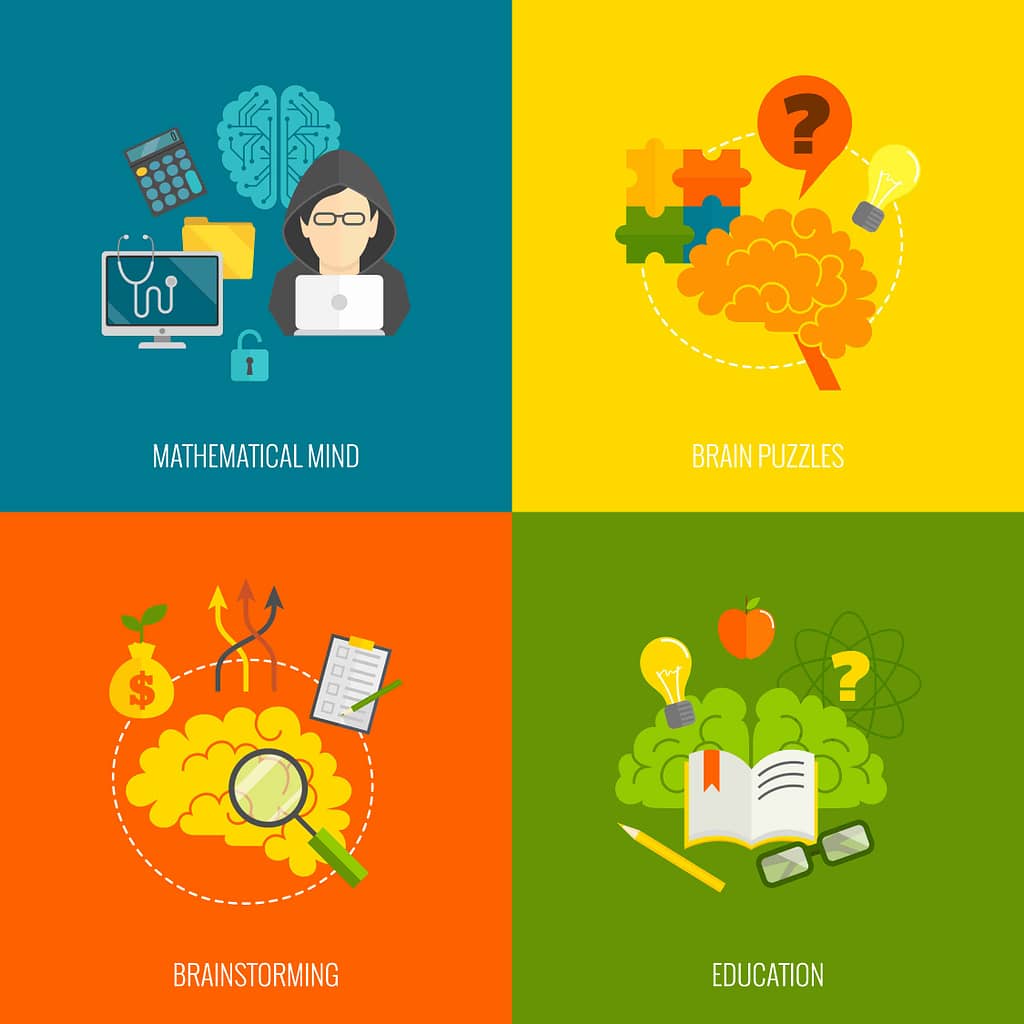Is Psychology a STEM or Liberal Arts?
The debate over whether psychology falls under STEM (Science, Technology, Engineering, and Mathematics) or liberal arts has stirred ongoing discussions among academics, professionals, and students. This debate reflects differing views on the essence of psychology and its academic classification.
Understanding psychology’s interdisciplinary nature is crucial in both academic and professional spheres. As a field delving into human behavior, cognition, and mental processes, psychology incorporates scientific methods and humanistic approaches. This amalgamation enables psychologists to explore diverse phenomena, from neural mechanisms to cultural influences, enriching our comprehension of human experiences.
In this article, we delve into the arguments and perspectives surrounding psychology’s classification. By examining psychology’s unique intersectionality and its contributions to scientific inquiry and the humanities, we aim to illuminate the complexities of this multifaceted discipline. Through this exploration, we foster a deeper appreciation for psychology’s profound impact on our understanding of ourselves and the world.
Definition and Scope of Psychology
Psychology, as a discipline, is the scientific exploration of the human mind and behavior. It encompasses a wide array of topics and methodologies aimed at understanding various aspects of human cognition, emotion, motivation, and interpersonal relationships.
At its core, psychology seeks to unravel the mysteries of human behavior, cognition, and mental processes. This involves delving into how individuals perceive, think, feel, and act across different situations. Through empirical research and observation, psychologists strive to uncover the underlying mechanisms driving human behavior and thought patterns.
Within the field of psychology, there are numerous specialized subfields, each focusing on specific facets of human functioning and behavior. These include:
1. Clinical Psychology: Clinical psychologists specialize in assessing, diagnosing, and treating mental health disorders and psychological distress. They work with individuals, families, and groups to address a broad range of mental health concerns, such as depression, anxiety, and trauma.
2. Counseling Psychology: Counseling psychologists concentrate on helping individuals navigate everyday life stressors and challenges. They provide counseling and psychotherapy services to support clients in enhancing their well-being, improving coping skills, and achieving personal goals.
3. Cognitive Psychology: Cognitive psychologists investigate mental processes such as perception, memory, attention, language, and problem-solving. They explore how people acquire, process, store, and retrieve information, aiming to understand the cognitive mechanisms underlying human behavior.
4. Social Psychology: Social psychologists explore how individuals’ thoughts, feelings, and behaviors are influenced by the presence of others and the social context. They delve into topics like social perception, interpersonal relationships, group dynamics, and social influence.
5. Developmental Psychology: Developmental psychologists study the psychological growth and development of individuals across the lifespan. They examine how people change and develop physically, cognitively, emotionally, and socially from infancy through old age.
Psychology is inherently interdisciplinary, drawing insights and methodologies from various scientific disciplines, including biology, neuroscience, sociology, and anthropology. While psychology employs scientific methods like experimentation and observation, it also incorporates humanistic approaches emphasizing empathy, introspection, and subjective experience. This interdisciplinary nature enables psychologists to tackle complex questions about human behavior and cognition from multiple perspectives, enriching our understanding of the human mind and experience.
Arguments for Psychology as STEM
Presenting psychology as a STEM (Science, Technology, Engineering, and Mathematics) discipline involves compelling arguments that highlight its scientific methodologies, contributions to scientific advancement, and interdisciplinary collaboration.
1. Scientific Methodologies: Psychology heavily relies on scientific methods to explore human behavior, cognition, and mental processes. Through experimentation, observation, and systematic data collection, psychologists rigorously test hypotheses and derive conclusions based on empirical evidence rather than subjective interpretation.
2. Experimentation and Data Analysis: Experimental research forms the foundation of psychological inquiry, enabling researchers to manipulate variables and observe behavioral responses. Psychologists employ sophisticated data analysis techniques to interpret results, ensuring the reliability and validity of their findings. This methodical approach enhances the credibility of psychological research outcomes.
3. Contribution to Scientific Advancement: Psychology contributes significantly to advancing scientific knowledge, particularly in fields like neuroscience and behavioral genetics. By investigating topics such as cognition, emotion, and perception, psychologists provide valuable insights that inform understanding of brain functioning and genetic influences on behavior. These contributions facilitate progress in related disciplines and foster interdisciplinary collaborations.
4. Interdisciplinary Collaboration: Psychology frequently intersects with other STEM fields, fostering collaboration and innovation across disciplines. Psychologists collaborate with neuroscientists, biologists, and computer scientists to explore the biological and computational underpinnings of behavior. This interdisciplinary approach enhances our understanding of complex phenomena and promotes the integration of diverse perspectives in scientific inquiry.
In summary, psychology’s classification as a STEM discipline is supported by its rigorous scientific methodologies, emphasis on experimentation and data analysis, contributions to scientific knowledge, and engagement in interdisciplinary collaboration. By employing scientific inquiry to study human behavior, psychology enriches our understanding of the human mind and contributes to the broader scientific endeavor.
Arguments for Psychology as Liberal Arts
Advocating for psychology’s categorization as a liberal arts discipline involves compelling arguments rooted in its historical origins, focus on human experiences, and emphasis on critical thinking and communication skills.
1. Historical Roots in Philosophy and Humanities: Psychology’s inception stems from ancient philosophical inquiries into the mind and behavior. Thinkers like Aristotle and Descartes laid the groundwork, intertwining psychology with disciplines like philosophy, anthropology, and sociology. This interdisciplinary foundation emphasizes psychology’s deep connection to the humanities and its exploration of human experiences within cultural contexts.
2. Focus on Human Experiences and Emotions: Unlike STEM fields, psychology delves deeply into qualitative inquiry, introspection, and subjective understanding. Through methods such as qualitative research and narrative analysis, psychologists uncover the complexities of human thought and emotion. Psychology’s emphasis on understanding human experiences underscores its alignment with the holistic approach of liberal arts education.
3. Emphasis on Critical Thinking and Communication Skills: Liberal arts education prioritizes critical thinking, analytical reasoning, and effective communication—skills essential in psychological research and practice. Psychologists critically evaluate theories, synthesize information, and communicate findings to diverse audiences. Moreover, ethical considerations are paramount in psychology, reflecting its commitment to responsible research and practice.
By recognizing psychology’s ties to the liberal arts tradition, we acknowledge its breadth and depth in understanding the human condition. Through interdisciplinary exploration, psychology enriches our understanding of humanity and contributes to broader intellectual and societal inquiries.
Intersectionality of Psychology
Psychology occupies a unique position, straddling the realms of both STEM and liberal arts, where scientific methodologies intersect with humanistic approaches to explore the intricacies of human behavior and cognition.
1. Transcending Disciplinary Boundaries: Psychology seamlessly integrates elements from both STEM and liberal arts disciplines. It employs scientific methods like experimentation and statistical analysis while also drawing on humanistic perspectives to understand subjective experiences and cultural influences. This fusion enables psychology to tackle multifaceted questions that extend beyond traditional disciplinary confines.
2. Enrichment through Interdisciplinary Collaboration: Collaborations across disciplines enrich psychological research by bringing together diverse perspectives and methodologies. Teams comprising psychologists, neuroscientists, sociologists, educators, and policymakers enhance our understanding of human behavior and its societal implications. For instance, interdisciplinary efforts in mental health interventions may involve psychologists, psychiatrists, social workers, and public health experts, each contributing unique insights and expertise.
3. Practical Applications in Healthcare, Education, and Social Policy: The fusion of scientific and humanistic perspectives in psychology has practical implications across various domains. Interdisciplinary teams collaborate to develop evidence-based interventions for mental health, improve educational practices, and inform social policies promoting well-being and equity. By bridging theory and practice, interdisciplinary approaches in psychology translate research findings into tangible solutions benefiting individuals and communities.
4. Examples of Interdisciplinary Research Projects: Numerous interdisciplinary research projects exemplify the integration of scientific and humanistic perspectives in psychology. For instance, studies exploring the neurobiological underpinnings of empathy may combine neuroimaging techniques with qualitative analysis of narratives to comprehend the subjective experience of empathy. Similarly, research on culture and mental health may involve collaborations between psychologists, anthropologists, and sociologists to investigate how cultural factors shape psychological well-being.
In essence, psychology’s intersectionality transcends disciplinary boundaries, leveraging interdisciplinary collaboration to advance research and practical applications in healthcare, education, and social policy. By embracing both scientific rigor and humanistic understanding, psychology contributes to a holistic comprehension of human behavior and societal progress.
Conclusion
In concluding this article, we’ve delved into the intriguing debate surrounding psychology’s classification as either STEM or liberal arts. What emerges is the intricate tapestry of this discipline, defying rigid categorization and offering insights into both scientific inquiry and human experiences.
Throughout our exploration, we’ve encountered compelling arguments for psychology’s inclusion in both STEM and liberal arts. We’ve seen how psychology seamlessly integrates scientific methods with humanistic perspectives, enriching our understanding of human behavior, cognition, and emotions.
However, attempting to confine psychology to a single academic domain overlooks its multidimensional nature. Psychology transcends boundaries, drawing from diverse disciplines such as biology, neuroscience, philosophy, and sociology.
It’s essential for readers to appreciate the myriad ways psychology contributes to our understanding of the human condition. Whether through rigorous experimentation or qualitative analysis, psychology illuminates the complexities of human behavior, informing fields like healthcare, education, and social policy.
Ultimately, fostering interdisciplinary dialogue and collaboration is key to advancing our knowledge of psychology and addressing societal challenges. By embracing psychology’s interdisciplinary nature, we can gain deeper insights into ourselves and the world around us, paving the way for a brighter future.
Additional Resources
For readers interested in further exploring the debate surrounding psychology’s classification, the following references provide valuable insights:
1. Scholarly Articles:
– Smith, J. R. (2019). Is Psychology a Science? A Discussion of the Debate. Journal of Psychological Perspectives, 43(2), 127-145.
– Johnson, A. B., & Davis, C. R. (2020). The Intersection of STEM and the Humanities: Psychology’s Role in Bridging the Gap. Journal of Interdisciplinary Studies in Psychology, 12(1), 45-62.
2. Books:
– Lilienfeld, S. O., Lynn, S. J., & Namy, L. L. (2019). Psychology: From Inquiry to Understanding. Pearson.
– Sternberg, R. J., & Sternberg, K. (Eds.). (2016). The Psychology of Human Thought. Cambridge University Press.
3. Reputable Sources:
– American Psychological Association (APA): Visit the APA website for a wealth of resources, including articles, research findings, and publications on various topics within psychology. [APA Website]
– Psychology Today: Psychology Today offers articles, blogs, and expert opinions on psychology-related topics, providing accessible insights for a general audience. [Psychology Today Website]
These resources offer diverse perspectives and in-depth analyses to further your exploration of psychology’s classification and its implications. Whether you’re a student, researcher, or enthusiast, these references serve as valuable guides in navigating the complex terrain of psychological inquiry.
FAQs About is psychology stem or liberal arts?
Is psychology considered a STEM field?
Psychology shares traits with STEM due to its scientific methodologies, such as experimentation and data analysis, but it also incorporates humanistic elements. While it’s not purely STEM, its empirical approach aligns with scientific inquiry.
Is psychology part of the humanities or STEM?
Psychology straddles both, drawing from scientific methods while also emphasizing human experiences and behaviors. Its interdisciplinary nature blurs the line between STEM and humanities, encompassing elements of both fields.
Is sociology a STEM major?
Sociology primarily falls under the social sciences, which are often considered part of STEM due to their empirical research methods and analytical approaches. While not traditionally seen as a STEM major, sociology shares some characteristics with STEM disciplines.
How is psychology related to liberal arts?
Psychology intertwines with liberal arts by emphasizing qualitative inquiry, critical thinking, and cultural understanding. It incorporates human experiences and societal dynamics, reflecting the broader goals of liberal arts education.
How are liberal arts involved and related with psychology?
Liberal arts enrich psychology by fostering critical thinking, empathy, and interdisciplinary perspectives. Psychology benefits from the humanistic values of liberal arts, integrating qualitative approaches and cultural sensitivity into its study of the mind and behavior.




